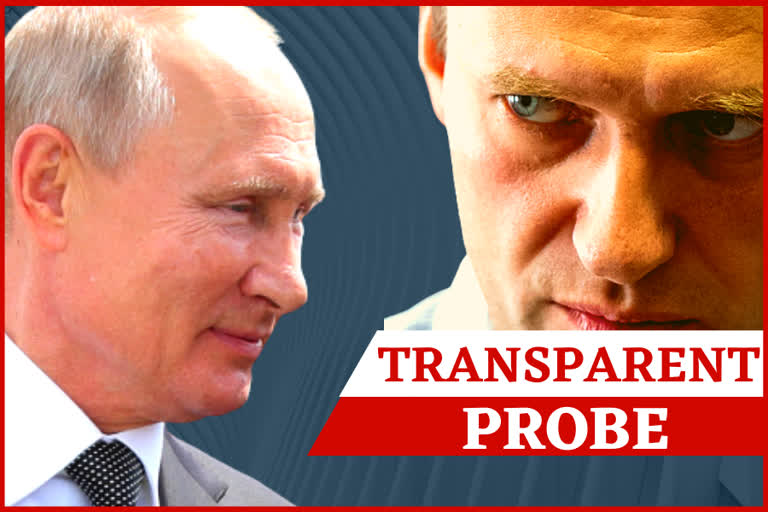Moscow: The Kremlin said on Wednesday it doesn't want the illness of Russia's opposition leader, who is in a coma in a German hospital after a suspected poisoning, to affect relations with the West as international pressure mounted on Moscow to investigate Alexei Navalny's condition.
The statement came two days after doctors at the Berlin hospital where the 44-year-old is being treated said tests indicated he was poisoned, and minutes before before UK Prime Minister Boris Johnson joined other Western officials in demanding a transparent investigation.
"The poisoning of (Alexei) Navalny shocked the world," Johnson said in a Tweet. "The perpetrators must be held accountable, (and) the UK will join international efforts to ensure justice is done."
Kremlin spokesman Dmitry Peskov reiterated Wednesday that Moscow "categorically" disagreed with "hasty" conclusions that Navalny was a victim of intentional poisoning, and said it doesn't want the situation to affect its ties with the West.
Read also:Russian opposition politician Navalny poisoned, in coma
"Of course, we wouldn't want that... Secondly, there is no reason whatsoever for it," Peskov told reporters. "We are absolutely, no less than others, interested in understanding what led to a coma."
Navalny, a politician and corruption investigator who is one of Putin's fiercest critics, fell ill on a flight back to Moscow from Siberia on Thursday and was taken to a hospital in the Siberian city of Omsk after the plane made an emergency landing.
Over the weekend, he was transferred to the Charité hospital in Berlin, where doctors found indications of "cholinesterase inhibitors" in his system.
These act by blocking the breakdown of a key chemical in the body, acetycholine, that transmits signals between nerve cells. Navalny is being treated with the antidote atropine.
His allies say the Kremlin is behind the illness of its most prominent critic, accusations that officials denounced as "empty noise."
The pressure on Moscow mounted after Charité revealed its findings. Chancellor Angela Merkel called for a thorough investigation into Navalny's condition. Officials in France and Norway echoed her sentiment, and the US Secretary of State Mike Pompeo said the U.S. "stands ready to assist" with a probe, if reports of a poisoning "prove accurate."
Pompeo's deputy Stephen Biegun met with Russian Foreign Minister Sergey Lavrov and other diplomats on Tuesday. According to Russia's Foreign Ministry, Biegun warned that if Navalny's poisoning is confirmed, the US could take steps that will exceed Washington's response to findings of Russia's meddling in the 2016 U.S. presidential election.
The ministry said Russian diplomats warned Biegun against making unfounded accusations and noted that Russian authorities stand for a "thorough and maximally objective investigation of what happened."
The Kremlin said Tuesday there were no grounds for a criminal investigation so far since it hasn't been fully established what caused the politician to fall into a coma. Peskov said Navalny's condition may have been triggered by other causes.
Merkel's spokeswoman, Ulrike Demmer, said Wednesday there was no reason to doubt the German doctors' findings.
"From the side of the German government, there is the fullest trust in the work of the doctors," Demmer said, adding that Germany takes the clinical evidence of a poisoning "very seriously."
AP
